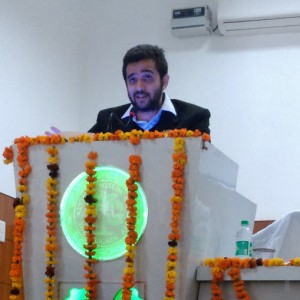In this blog post, Somesh Tiwari, who is currently pursuing a Diploma in Entrepreneurship Administration and Business Laws from NUJS, Kolkata, gives a historical overview of the evolution of societies and how this evolution has led to a change in the purpose for which societies are formed. He further goes on to discuss when a society should be incorporated.
The fundamental reason or need to incorporte a society can be narrowed down to the cause; it is to attain a specific cause through symboitic coordination among a group of people. A society therefore functions through the collective collaboration of a specific group of people who want to achieve a certain goal for benevolent purposes.
Purpose For incorporating a society
Under the Indian Societies Act 1860, a society can be formed for any literary, scientific or charitable purposes, or any other such purpose defined under Section 20 of the Act. It is usually a specific cause that brings people together to form a society. It can be a local society which collectively represents the cause for which people of that specific local area are concerned, or it can be a national society functioning on interstate basis. Now, the Indian Societies Act is a pre-independence era Act which has already been amended numerous times. Therefore, the reasons for which a certain society was formed back then may vary from today due to the evolution of society, plus there have been numerous economic changes which affect how a society functions. What we also have to bear in mind is that the cause and reason for incorporating a society may also be different. The purpose can be anything as long as it coincides with the provisions of the Indian Societies Act; there must be at least seven members in order to form a society as per the Act. An incorporated society is outside the governmental dominion, which basically means the state or the central government cannot regulate the workings of the society. It is governed by the memorandum of association which is signed by the members of the society. To elaborate, society works in a symbiotic manner, thus the elementary purpose is resolving problems faced by people with the help of people within specific masses of people in an individual political unit. It could be for the protection of a shared belief or representation of the art and culture of certain communities. Therefore, purpose is what unites and drives a certain set of people to come together and symbiotically enhance their reach in terms of their beliefs, which fundamentally forms their society.
Evolution of societies from the 18th century leading to change in purpose
It is believed that the concept of society firmly hit ground around the 18th century due to change in the economic infrastructure which resulted in the major escalation in the earning of the common masses, plus the liberalization of the western world. This era saw big scientific advancements in the world leading to a certain section of people not agreeing with the methodology of the church. They wanted a rather different approach towards specific subjects. These people with a common approach realized that their influence on the world at large is limited if they stand against the church individually, they understood that only when they unite together for their cause will they be able to make a certain impact in the world.
In the early 19th century, due to the 1st World War, the structure of society disintegrated, it saw a collapse in regimes followed by individuals with a will to voice their opinions. Everything in that period revolved around war and its effects. By the mid 90’s, the theory of Bowling Alone was given by Robert D Putnam. In his theory, he “surveys the decline of social capital in the United States since 1950. He has described the reduction in all the forms of in-person social intercourse upon which Americans used to found, educate, and enrich the fabric of their social lives. He argues that this undermines the active civil engagement which a strong democracy requires from its citizens.”After the decline in the early and the mid-19th century, the purpose of forming a society changed again but this time in the late 90’s, people became more aware of their rights and thus became active in the political sphere. When such individual from came together for cause of common interest, it subsequently lead to a low revival of the societies. This era saw the steady rise in communitarianism; the connection between individuals and the community became better because people interactions increased due to common interests.
But, this is not the 18thor the 19th century. The purpose of forming a society may not be entirely different but their agendas may vary from time to time. The purpose of modern society still remains to efficiently solve issues of people on a collective level, but the fulfilment of this agenda has not been devoid of challenges. The laws have been amended numerous times and there have been bills passed to improve the inter-state functions of societies. Every state has enacted its own law for the purpose of suiting its regional needs.
Conclusion
Therefore, to incorporate a society, there has to be a sense of purpose, a commonality without which the entire structure of a functioning society is disintegrated. The reason of an entire community moving towards a specific goal with collaborative effort and commitment is the driving force of a society. Once a certain group reaches that level, and is eager to put in effort for a common benevolent cause, a society can be established.
But the collaborated efforts should not be loosely structured and the purpose behind establishing a society should be upheld with decorum and the sanctity of such purpose must be maintained throughout. These efforts should be aimed at resolving conflicts with efficiency and achieving a sense of greater good of the world.
 Serato DJ Crack 2025Serato DJ PRO Crack
Serato DJ Crack 2025Serato DJ PRO Crack











 Allow notifications
Allow notifications


